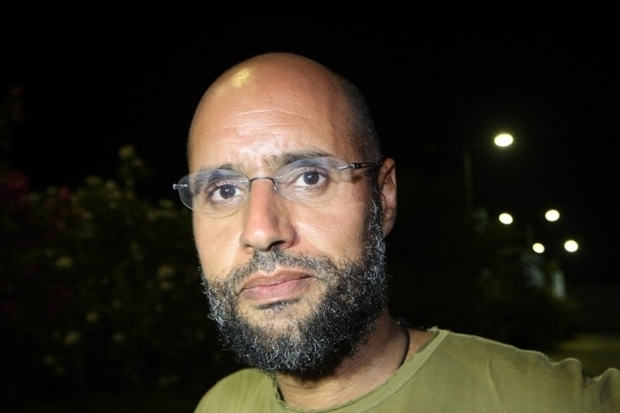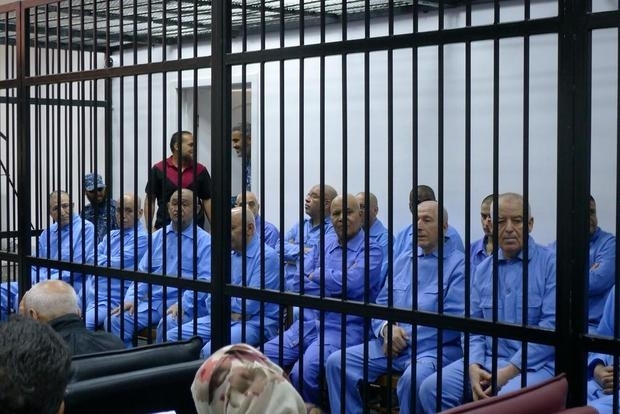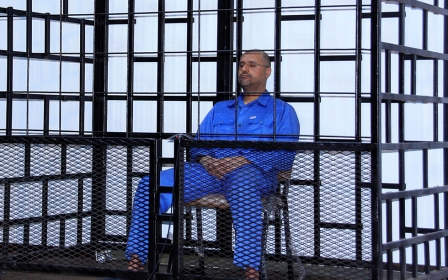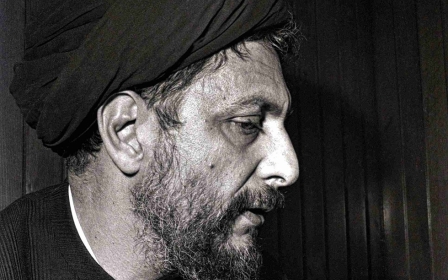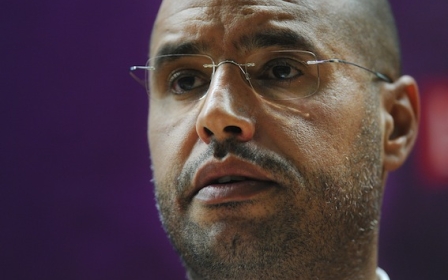ANALYSIS: Gaddafists rally forces as Libya yearns for stability
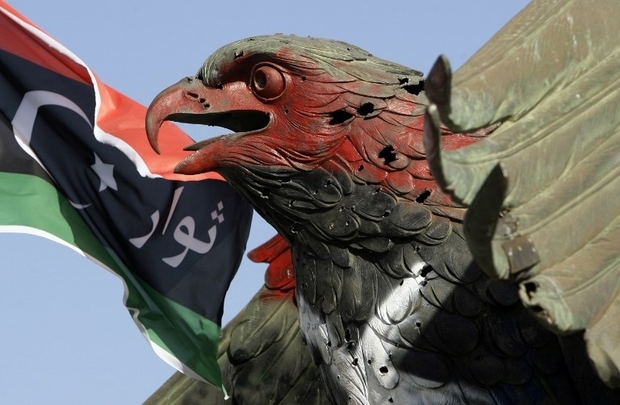
TRIPOLI – The Gaddafists appear to be back, including one of the most prominent, Saif al-Islam, the favourite son of the deposed Libyan leader, Muammar Gaddafi.
In a recent televised interview, Ghassan Salame, head of the United Nations Support Mission in Libya, said that the political reconstruction process “may include” Saif al-Islam.
This is in spite of the death sentence handed down to Gaddafi’s second son by a Tripoli court on 28 July, and in spite of an arrest warrant issued in his name by the International Criminal Court.
Allegedly released by the Zintan militia in June, after six years in captivity, Saif al-Islam has not appeared since then.
But the Lebanese diplomat seems undeterred by these issues, as long as Saif al-Islam can help bring the desperate political stalemate to an end.
First, there is what is being said.
“The Gaddafists who have no blood on their hands have done less harm to Libya than the revolutionaries who facilitated the arrival of terrorists or who resorted to kidnapping,” said Hashim Bishir, the security advisor to the UN-recognised prime minister of Libya, Fayez al-Sarraj.
The former president of the Supreme Security Council, the Salafist-leaning militia that secured Tripoli in the aftermath of the revolution, told MEE that he saw nothing wrong with the eventual candidacy of the rabble-rousing Bachir Saleh, who was at the head of an investment fund while Gaddafi was president.
Then there is what is being done, such as the sumptuous dinner shared by former Gaddafists and their families recently at a luxury seaside resort.
The dinner guests included five leading figures at the centre of the green resurgence: Saadi Gaddafi (Saif al-Islam’s brother), Abdullah Senussi (former military intelligence chief), Baghdadi Mahmudi (former secretary of the General People’s Committee), Mansour Dhao (former chief of security) and Abouzed Dorda (former secretary of foreign affairs).
Yet the first is standing trial for murder and alleged wrongdoings during the revolution, and the four others were sentenced to death on 28 July 2015, along with Saif al-Islam, on 18 counts ranging from undermining state unity and incitement to murder.
These former top officials may no longer be prisoners, but they have passed into the hands of a velvet-gloved host, Haithem Tajouri.
On 26 May of this year, the militia leader chased the former Libyan Islamic Fighting Group (LIFG) member, Khaled al-Sharif, and his men from Al-Hadhba Jail, where important political prisoners were being kept in appalling conditions.
'My brother was thrown from the second floor of the prison for refusing to renounce Gaddafi. He has had to walk with a cane ever since'
- Abdullah Dorda
On 2 August 2015 a video was posted on social media networks showing Saadi Gaddafi being tortured, beaten on the soles of his feet, and forced to watch and listen to the screams of two other prisoners.
In a report dated 21 February 2017, the UN High Commissioner for Human Rights quoted a guard who claimed that relatives of victims of the 1996 Abu Salim massacre, in which an estimated 1,200 prisoners were killed, presented themselves at Al Hadhba in order to beat Abdullah Senussi, who was held responsible for the tragedy.
“My brother was thrown from the second floor of the prison for refusing to renounce Gaddafi. He has had to walk with a cane ever since,” Abuzeid Dorda’s brother, Abdullah Dorda, told MEE.
The Five Green Musketeers
Baghdadi Mahmudi was reportedly beaten and humiliated as well.
“During one of the interrogations, a government minister entered the room and doused him with gas,” one relative reported.
Prisoners were also confined to cage-like cells, two meters long and 80 centimetres wide, that were “painted black, without mattress or light, with only a plastic bowl for relieving themselves,” Hashim Bishir explained.
When Haithem Tajouri captured Al Hadbha jail, he released Gaddafist prisoners – the exact number of which has yet to be confirmed – some because they had completed their sentences, others for no apparent reason at all.
As for the Five Green Musketeers, he is using them as wild cards, aware they can help bolster his reputation as “the Tripoli strongman” which he earned last spring when he expelled the armed forces of Misrata and the militias close to Islamist movements, such as the group led by Khaled al-Sharif, from the capital with the help of RADA special deterrent forces, a newly formed Salafist unit.
Tajouri appears to be taking good care of them.
“They are being held together in a place that isn’t really a prison. You can enter it like you would any other building. My brother is dressed in normal clothes and is being well fed,” said Abdullah Dorda.
“He has had to walk with a cane since he was tortured in al-Adhba Prison but he is being taken care of. He has access to television. I can go see him whenever I want to,” he added.
The former foreign affairs secretary’s sibling draws the line when it comes to suggesting his brother may still have a role to play in Libya’s political reconfiguration, adding in his defence: “But the Libyan people know that my brother has no blood on his hands and that he never betrayed his country.”
'They are the five Libyans who could bring stability to Libya. They are the missing link that could lead to reconciliation'
- Mehdi Bouaouaja, lawyer
Ali Dhouba, the lawyer who represents Baghdadi and Dorda, believes the release of his clients and other Gaddafi bigwigs is quite possible.
“The Supreme Court has all the evidence it needs to overturn the judgement of the so-called trial. Moreover, all of these men are eligible for pardon based on the amnesty law voted by the Tobruk House of Representatives,” he said. The amnesty was passed on 29 July 2015, the day after the death sentences were issued.
Mehdi Bouaouaja, one of Mahmudi Baghdadi’s lawyers from Tunisia, puts forward a political argument as well.
“These are the five Libyans who could bring stability to Libya. They are the missing link that could lead to reconciliation. I’d like to invite Ghassan Salame to meet with them and talk to them.”
That would be easier than meeting with the conspicuously absent Saif al-Islam.
Some of his followers are now starting to doubt he is still alive. They were convinced that Saif al-Islam was going to make a television appearance on 22 June. In Islamic belief, on the 27th night of Ramadan, known as Laylat al-Qadr, or the Night of Power, “the Angels and the Spirit descend from heaven.”
Saif al-Islam never showed up.
This piece originally appeared on the French version of Middle East Eye.
New MEE newsletter: Jerusalem Dispatch
Sign up to get the latest insights and analysis on Israel-Palestine, alongside Turkey Unpacked and other MEE newsletters
Middle East Eye delivers independent and unrivalled coverage and analysis of the Middle East, North Africa and beyond. To learn more about republishing this content and the associated fees, please fill out this form. More about MEE can be found here.


